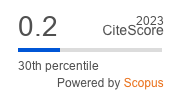Il bene comune alla fine della modernità
Enrico Berti e la nuova società politica
DOI:
https://doi.org/10.19272/202500702005Parole chiave:
Società, Politics, Aristotle, Constitution, Bene comuneAbstract
In un articolo del 1997, Enrico Berti proponeva l’idea di una nuova società politica che si sarebbe realizzata dopo la crisi degli Stati nazionali. Secondo Berti, la nuova società politica avrebbe avuto dimensioni sovranazionali e struttura federale, secondo il principio di sussidiarietà. Questo saggio analizza le tesi predittive e normative di Berti, suggerendo, per alcuni problemi che esse lasciano aperti, soluzioni ispirate al concetto aristotelico di politeia, analizzato da Berti in altri studi. L’argomentazione si incentra sulla necessità che una società politica si articoli fino alle sue fondamenta, gli individui uniti in rapporti sociali naturali, per esprimere una rappresentanza capace di perseguire il bene comune, ossia la realizzazione la natura di tutti e di ciascuno.



